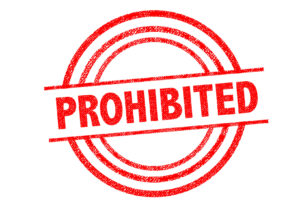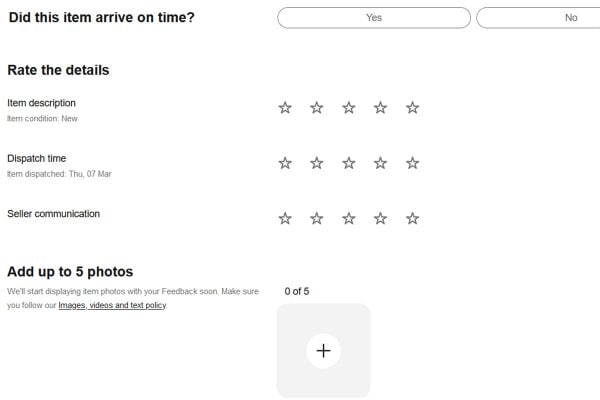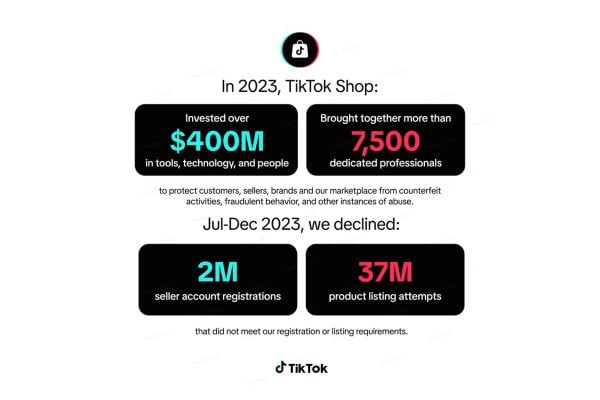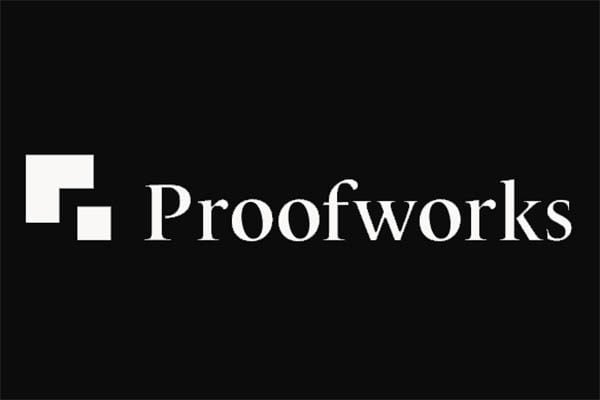 Brand owners who refuse to allow their products to be sold on marketplaces are killing European small businesses and stifling cross-border trade. According to research finding, more than half of European small businesses selling online (53%) say they have been affected by these restrictions with 91% of sellers noticing an increase in platform bans from brand owners compared to three years ago.
Brand owners who refuse to allow their products to be sold on marketplaces are killing European small businesses and stifling cross-border trade. According to research finding, more than half of European small businesses selling online (53%) say they have been affected by these restrictions with 91% of sellers noticing an increase in platform bans from brand owners compared to three years ago.
Of those businesses that have been affected by platform bans, 36% say the restrictions have reduced their revenue and 36% highlight that they are burdened with unsold stock. As well as affecting business owners, platform bans endanger the jobs of people who work for small businesses. Almost a quarter (23%) of small businesses have been forced to make staff redundant because of the restrictions.
One of the benefits small businesses see in online marketplaces is the opportunity to sell to customers all over the world. As reported by Copenhagen Economics, for small enterprises that use both online marketplaces and their own website, about 70% of cross-border turnover is from online marketplaces; this is unsurprising, since the majority of sellers (85%) consider it a major hurdle that their own websites lack sufficient traffic for selling online.
The increasing use of platform bans will have significant consequences for European small businesses, as three quarters (75%) of online sellers say that they would lose up to half of their revenue if all brands imposed bans.
If forced to stop selling via online marketplaces, businesses are unable to recover, with only 5% of online sellers able to recoup between 81% and 100% of lost online marketplace sales through brick and mortar retail or their own websites.
In fact, analysis by Copenhagen Economics shows that, if all brands imposed bans, this would cause a major upheaval in retail commerce, depriving online sellers of an estimated €26bn of online retail sales, diverted elsewhere.
There is a growing opportunity for brands to reach new customers via online marketplaces – now 81% of the items sold on eBay are brand new, with new manufacturers joining every day.
European competition regulators are currently examining the practice of platform bans as part of its E-commerce Sector inquiry due to be published in early 2017.
 Senior Vice President for eBay EMEA, Paul Todd, said: “Europe’s small and medium businesses are the engine of economic growth so it is vital that we remove restrictions that prevent their businesses from growing and succeeding. Platform bans allow brands to keep prices artificially high, restrict consumer choice and may breach EU competition rules. We believe e-commerce should be open for all and call on the Commission to step up its enforcement actions against these anti-competitive practices.”
Senior Vice President for eBay EMEA, Paul Todd, said: “Europe’s small and medium businesses are the engine of economic growth so it is vital that we remove restrictions that prevent their businesses from growing and succeeding. Platform bans allow brands to keep prices artificially high, restrict consumer choice and may breach EU competition rules. We believe e-commerce should be open for all and call on the Commission to step up its enforcement actions against these anti-competitive practices.”











7 Responses
These sorts of things aggravate me. We have taken numerous brands to court on the grounds of price fixing/anti-competition and have come away with a positive result on every occasion, with the brand either paying us for the retail value of the stock or them contacting eBay to say that all is well – sometimes both. Invite them down to view the stock and watch them squirm.
My advice would be to press them legally, if you have the resources to do so. They soon back down because they either can’t be bothered or don’t have a leg to stand on.
This has already effected us with Paypal restricting out business account on the grounds of violating trademarks. This is a huge issue. Even when you try to contact them they are useless at responding whilst we are try our best to resolve the issue. Terrible news for small businesses, how are we supposed to expand with the ridiculous brand restriction in place.
Western Digital tried to take my company to court on this threatening me regards trademarks. It cost me nearly £4K in legal fees and in the end i could not afford to fight them anymore and was forced to sign a disclaimer. My turnover has dropped 50% in the last 6 months.
On a daily basis i can see large companies still doing this but nothing ever happens to them, probably as Western Digital know they could afford to fight them.
Greg & Lewis, what sort of stock is it that you both sell and what problems have you encountered?
I sell branded stock on ebay that is failed orders, old stock or customer returns and often have restrictions placed when buying stock that we are not allowed to use certain brand names.
Got to say that I am both sides of the fence for this one – but mostly WITH the companies restricting selling!
As a small business it does annoy me that I cannot sell certain branded goods – BUT – I can see why some companies do not allow this. It has happened with us and we have lost out on selling “good sellers” from our inventory and it is because companies cannot stipulate a MINIMUM selling price, as I think this is considered price fixing, but then everyone out there thinks that they will buy some in for a quick profit and sell it at ridiculously low prices. The “brand” then losses its value and the company pulls the plug on certain platforms as THEIR product is being devalued.
The company does not mind people selling on these platforms but because nobody will adhere to a minimum price they are damaging a product that may have taken years to get where it is. Now, I am one for a good bargain but people have to make a living too.
If I had a product that sold at a good price – for re-sellers – that’s us!! and then the above scenario ensued, I would pull the plug on it too!
We have had products in the past that we made a reasonable profit on and were happy to sell, but because of the minimum pricing laws, anybody can sell them at any price they like, and when you ain’t paying tax and VAT then you can afford to sell at these ridiculously low prices. That is what does not help small business, it’s not the big companies fault they want to keep their product worth something. Stop blaming the companies trying to protect their products and go chastise the idiots that want EVERY sale, even if they only make a penny on it!
Didn’t intend to write this but I suppose that will be my rant over for the day!
ebay themselves are limiting stock without interference from Brand owners. I am a powerseller but cannot add more stock due to ebay placing limits on that particular item. Amazon tell you back in Sept that your account doesn’t meet their requirements to list in toys category. Ebay wait until December after you have already sold 5 items and have already sunk money in more stock which now cannot be listed. I am a small seller so I really feel for big sellers who may have ordered stock months in advance only to be told now that they can only sell 5 items per week.